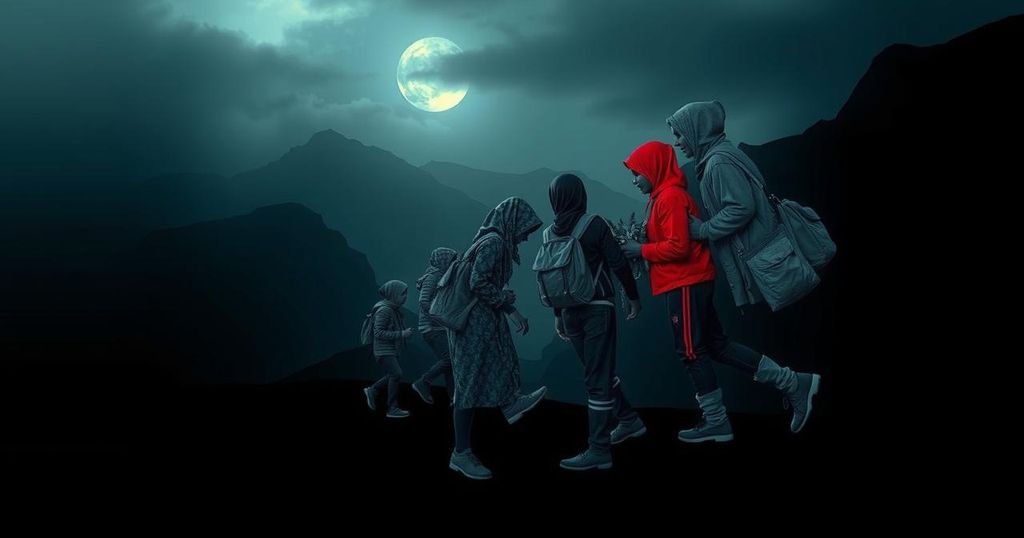The UN reports that climate change has intensified global displacement, with 120 million now forcibly displaced. The consequences of climate hazards are particularly severe in regions already affected by conflict, as about 75% of displaced individuals live in such regions. The report emphasizes the urgent need for international action to address the intertwined crises of climate change and forced migration.
The United Nations has issued a warning that climate change is significantly exacerbating the global refugee crisis, contributing to an alarming increase in the number of displaced individuals, which has risen to 120 million over the past decade. According to the UN Refugee Agency (UNHCR), approximately 75% of forcibly displaced persons reside in regions greatly affected by climate hazards. This escalating crisis has been driven not solely by conflict, but also by the pressing impacts of climate change underpinning the plight of vulnerable communities. The UNHCR report highlights that half of the displaced individuals are situated in areas grappling with both severe conflict and climate-related challenges, including countries such as Myanmar, Somalia, Sudan, and Syria. Filippo Grandi, UN High Commissioner for Refugees, stated that for the most vulnerable communities, climate change represents a harsh reality that significantly impacts their lives, compounding their vulnerabilities in regions already overwhelmed by conflict and insecurity, leaving them with little safe refuge.
The ongoing climate crisis poses a substantial threat not only to environmental stability but also to global human security. With the number of forcibly displaced individuals hitting unprecedented levels, there is a pressing need to understand the nexus between climate change and forced migration. As extreme weather events and environmental degradation intensify, vulnerable populations are increasingly uprooted, facing dual threats from both climate hazards and violent conflicts. Addressing these multifaceted challenges is critical in fostering resilience and providing adequate support to those displaced by these crises.
In summary, the interplay between climate change and forced displacement is a critical issue that demands urgent attention. The UNHCR’s report underscores the necessity for global leaders and decision-makers to prioritize climate action and humanitarian support to assist the vulnerable communities that are disproportionately affected by these crises. As climate conditions worsen, it is incumbent upon the international community to address both the immediate needs of displaced individuals and the broader environmental challenges that contribute to their plight.
Original Source: www.aljazeera.com






